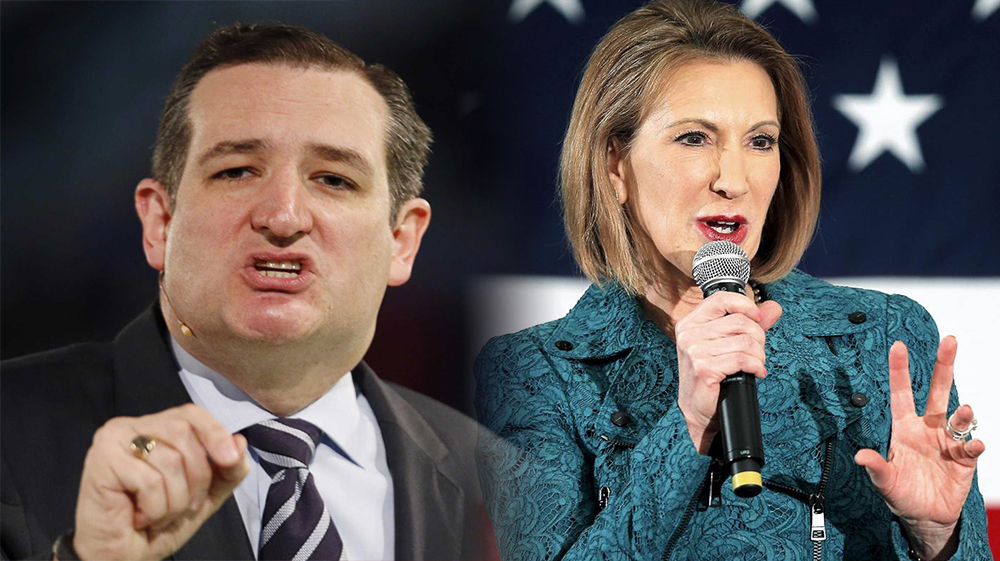How Neil Bush Succeeded in Business Without Really Trying
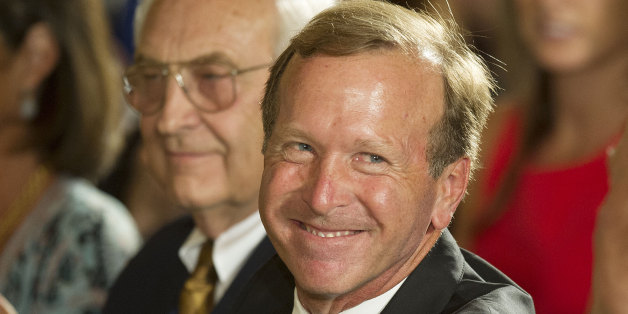
Now, that ain’t workin’
That’s the way you do it
Get money for nothin’
And your chicks for free.
— Dire Straits, “Money for Nothing”
His mother still calls him Neilsie. He refers to his dad, the former president, as Gampy. Neil Bush may be the black sheep of the Bush family, but his relatives have never let him down. Whenever he’s been mired in financial, legal or marital imbroglios, someone in the Bush family entourage has always reached out a helping hand and often that hand has slipped Neil a fat check.
Neil Bush, the fourth child of George and Barbara, was long thought to be the rising star of the family. He had the looks, the convivial demeanor, middle-of-the-road politics and, despite suffering from a severe case of dyslexia that made him the laughing stock of St. Albans (the stuffy DC prep school that groomed Al Gore) the brainpower. At least he seemed brighter than Jeb or George Jr. And, most important of all, he was the favorite son of Barbara Bush, the Agrippina of American politics.
All those lofty political aspirations came to a fatal crash in the fall of 1988, at the precise moment his father was poised to ascend to the presidency, when the Silverado Savings and Loan went belly up with Neil in the driver’s seat.
In these days of multi-billion dollar financial crimes by the likes of Enron, Tyco and WorldCom, the failure of a relatively small Colorado thrift may not seem like much. But Silverado came to symbolize the entire savings and loan debacle, which ended up costing the government more than $150 billion in bail out money. Many of these companies exploited the newly deregulated financial markets to lavish unsecured loans to company insiders or political favorites and rewarded company officers and directors with ostentatious salaries and benefits. When the thrifts collapsed, the directors and executives walked away unscathed, while small investors and account-holders were left out in the cold. Appropriately, the looting of the savings and loans hit Texas harder than most other states.
At the time, Neil Bush claimed that he was being made a political scapegoat for Silverado’s troubles. He said he was only a bit player in the S&L with no real decision making power, a mere figurehead and little more. Of course, there was some truth to this. But Neil Bush was not an entirely passive director. Indeed, he used his position as director to steer unsecured loans to his business partners, including at least one project, a scheme to drill for oil in Argentina, in which he had a direct financial stake.
The US Office of Thrift Supervision, which scrutinized the implosion of Silverado, determined that Bush had engaged in numerous “breaches of his fiduciary duties involving multiple conflicts of interest.” A couple of years later, Bush and his cohorts in Silverado settled a $200 million civil suit brought by the Federal Deposit Insurance Corporation for $49.5 million dollars. The FDIC had charged the executives and directors of Silverado with gross negligence. Bush forked out $50,000 of his own cash for his part of the settlement, with most of the money coming from insurance companies.
It wasn’t supposed to be this way. Bush had moved to Denver in 1980 with his new bride, Sharon. He was meant to set up a base of political operations in the Rocky Mountain state, with his eyes on the governor’s mansion or a senate seat. But first there was a fortune to be made.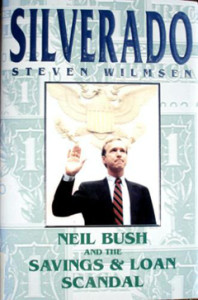
In 1983, Neil started an oil company, naturally, called JNB Exploration. The seed money for the opeation came in the amount of $150,000 from a Colorado real estate mogul named Bill Walters, the self-proclaimed Donald Trump of Denver. Another early investor in JNB was Walter’s friend Ken Goode, another real estate baron, who arranged $1.75 in million credit for Bush’s company from a bank controlled by Walters. For his part, Neil Bush kicked in $100 to the JNB Exploration kitty.
It wasn’t long before JNB began to list. A bail out was arranged with money coming from Silverado Savings and Loan, where Bush now served as a director.
Meanwhile, Bush continued to receive favors from Ken Goode. In the mid-1980s, Goode gave Bush $100,000 in investment funds, chips to play with in the stock market. Bush ended up losing all the money, but never paid a cent back to Goode.
Bush did, however, steer millions in Silverado loans Goode’s way. In 1986, Bush prevailed upon the Silverado board to approve more than $34 million in loans and credit to Walters and Goode, unsecured by anything other than Bush’s word.
Neil also urged the board to loan another of Goode’s companies, Goode International, $900,000 to finance an oil drilling operation in Argentina. In his pliant letter to the board, Neil conveniently elided the fact that he was a silent partner in this deal. Indeed, the Argentina oil scheme was his idea, predicated on familial ties to the corrupt of junta of generals then clutching the country in a murderous grip. Silverado was a pyramid scheme of financial self-dealing.
After Silverado crashed, Neil briefly became the poster boy for the S&L crisis. He was mercilessly mocked by the great Texas populist Henry Gonzales, during his hearings on the S&L scandal. Neil Bush’s political ambitions were mortally punctured, but his business career was just starting to take off. After all, his father was now president and there was a global network of connections to exploit.
In 1989, a few months after the expiration of Silverado, Neil was offered the chance to run another company that had been created just for him, Apex Energy. The $2.3 million in start up funds came courtesy of Bush family confident Louis Marx, heir to the Marx toy fortune. Bush pulled down $150,000 a year as CEO. Within two years, Apex Energy took a nosedive into bankruptcy.
But Neil Bush moved on, this time to TransMedia Communications, a cable TV venture headed by Bill Daniel, a longtime funder of Neil’s father’s political campaigns, who had been lobbying furiously for the deregulation of the telecommunications industry. For his services, Neil was remunerated to the tune of $60,000 per year, even though TransMedia’s president, Dick Barnes, later admitted that the younger Bush knew nothing about the cable business.
It was around this time that Neil struck up a friendship with Nigal Fares, son of Issam Fares, then deputy Prime Minister of Lebanon and another longtime friend of the Bush family. Fares hired Neil to negotiate global deals involving the sale of covers for oil storage tankers. This partnership inaugurated Neil’s lucrative ventures in the Middle East, leading to fruitful relationships with oil sheiks from Qatar to Dubai, Kuwait to Saudi Arabia.
But Neil didn’t just dabble in oil. He also looked for opportunities to cash in on the new opportunities in the booming markets of Asia. In 1994, he started a company called InterLink with Tom Bridewater, a Utah tycoon and rightwing politician. The plan called for Neil to act as an intermediary to help grease deals between US and Asian companies. According to his recent divorce settlement, Neil earned from $180,000 to more than a $1 million a year from InterLink alone. In fact, it is alleged that Neil was paid $1 million to arrange a private meeting in New York City with Taiwan’s president Chen Shui-bian. The charge was leveled by James Soong, leader of Taiwan’s opposition party. Bush admitted to meeting Chen, but denied that he received any money from the Taiwanese leader. Meetings between officials of the US and Taiwanese governments have been prohibited since 1979, when the US normalized relations with Beijing.
The windfalls kept coming his way. On July 19, 1999, Neil experienced one of his greatest triumphs. He made $171,000 in a single day by buying and selling shares of the Kopin Corporation, a display panel company, which on that very afternoon announced a surprise deal with Japanese electronics giant, JVC, causing the stock to soar. While Neil denies profiting from any insider knowledge, the exquisitely timed transaction has all the hallmarks of a Martha Stewart-style deal in reverse. Instead of stemming losses, Neil Bush made a quick killing. Kopin had been one of Interlink’s early clients and Neil had recently arranged a deal where Telecom Holdings, a Hong Kong company, invested $27 million in Kopin. As a reward, Neil received stock options in the newly beefed up firm. It was merely a coincidence, Neil told the Associated Press earlier this year, that he exercised those options on that July morning and sold them later in the same afternoon, following the momentous JVC deal. Just another fortuitous coincidence.
Neil Bush’s escapades across Asia came to the attention of the Grace Semiconductor Management Company, which recruited Bush onto its board of directors. Despite the fact that Neil admitted he knows nothing about semiconductors, the Chinese company recompensed Bush with $2 million in stock and $10,000 per board meeting. Grace is controlled by Taiwanese tycoon Winston Wong and Jiang Mianheng, son of Jiang Zemin, former president of China.
Another of Neil’s rich friends is Jamal Daniel, a Syrian-American multimillionaire. When Neil and Sharon griped that their family didn’t get to spend very much time in Kennebunkport, Daniel shelled out $380,000 to buy them a cottage next to the Bush compound.
Jamal Daniel also put Bush on retainer for his Crest Investment firm, paying him $60,000 a year to help broker deals in the Middle East. One of Daniel’s most recent ventures is New Bridge Strategies, a kind of financial influence peddling outfit whose main endeavor these days is to help companies win contracts for the reconstruction of Iraq. What one brother destroys, another rebuilds.
In May of 2002, Neil Bush found himself alone in his hotel room in Dubai, where he was trying to secure financing for his new company Ignite! Learning, an educational software company geared to exploit his brother’s No Child Left Behind education strategy. Neil sat before his laptop computer and pounded out a long email to his wife of 23 years, informing her that he wanted a divorce. Oddly, given his track record financial coups, Neil’s ungentlemanly missive wallows in concerns about the family’s frail bank account.
“Your comments at our pool-side dinner with the kids that you and I should race to see who could make a million dollars faster, your belief expressed in different ways that I have not made enough money, your belief that it was easy to make money, and that Jamal Daniel’s plotting or Dad’s influence will be the magic answer to our financial woes all cause me consternation and reflect the bitterness and anger that has come from the loneliness you described Friday,” Neil wrote. “It is very clear that we are failing to meet each other’s core needs. We’re almost out of money and I’ve lost my patience for being compared to my brothers, for being put down for my inability to make money, and tired of not being loved. I’m sure you have felt abandoned and a deep sense of loneliness.”
Of course, in his e-confessional Neil Bush didn’t feel compelled to come clean about the sexcapades with the Asian hookers or reveal the fact that he’d fallen in love with Maria Anderson, the wife of Houston oil baron, Robert Andrews, a woman Sharon Bush would later denounce in public as “Neil’s Mexican whore.”
At the very moment Neil hit the send button on this brutal adieu, he was penning Maria breathlessly written love letters, pining for the time when they would be both be freed from the shackles of their marriages.
“My heart is breaking with solitude,” Neil wrote his lover. “I can’t wait to be free to dedicate all of my passion to love you. I hurt to have you in my arms, to make love with you and be a part of your life.” Yet another testimonial to Bush family values.
According to Neil, the two met in 2001 when Maria was working as a volunteer in Barbara Bush’s office, but things didn’t start to get amorous between them until January of 2002 when they found themselves together at a Houston fundraiser for Jeb Bush. A few weeks later Neil showed up at the Andrews’s $4 million mansion, known to the neighbors as Swankienda. He came on a mission to raise money for his new project, Ignite! Robert Andrews was an oil tycoon who had made his millions largely through a fruitful alliance with one of Mexico’s most notorious moguls, Carlos Slim Helu, the billionaire who controls the Grupo Carso conglomerate that includes TelMex.
That spring day, Neil walked away with $100,000 from Robert Andrews for his company and a new companion. As his mother said, Neil’s quite the smooth talker. A few weeks later, Maria and Neil absconded to Mexico together, ostensibly to search out new investors for Ignite! They returned with a lucrative production deal courtesy of Slim Helu and a pledge to seek divorces from their respective spouses. Neil soon fired off his parting email to Sharon and, upon returning to Texas from Dubai, moved into a Houston apartment owned by his Syrian business partner, Nijad Fares. In a harmonious display of their new fidelity, Neil and Maria filed for divorce on the same day, August 26, 2002.
When Sharon Bush learned of the affair with Maria Andrews, she launched a pre-emptive battery that would have impressed the Iraq war planners. First, she announced plans to write a tell all book about the Bush family, hinting darkly about revealing the truth of the Silverado scandal and George W. Bush’s boozing and carousing. Then she let slip the fact that she had been spilling family secrets to Kitty Kelly, who was racing to complete her scathing exposé of the Bush clan, The Family, on the eve of the 2004 elections.
Later Sharon turned her sights on her rival, the vivacious Maria Andrews. She infamously confronted the couple at a Houston smoothie shop where Maria and Neil were dining together and called her Neil’s “Mexican whore.” Then she made allegations that Neil and Maria had been sleeping together for several years and that Maria’s youngest child had not fathered by Robert Andrews but by Neil. Andrews struck back with an $850,000 libel suit, but Sharon won the first round when a Texas judge approved her demand for DNA samples from Andrews and the child. And so it goes.
The Neil v. Sharon Bush divorce papers provide the most titillating bedtable reading since the footnotes of the Starr Report. For example, the divorce depositions detail Neil’s dalliances with prostitutes in Asia. While Neil was doing Interlink business in Thailand and Hong Kong, he enjoyed the exotic experience of hearing an urgent knocking on his hotel room door. Upon opening the door, Neil was confronted by a beautiful young woman who said she wanted to have sex with him. On at least three difference occasions, Neil accepted the hospitality of his hosts. He admitted to the sexual encounters in his bizarre deposition during his divorce proceedings. The deposition was released earlier this year. Here’s a sample of the back and forth between Bush and his wife’s lawyer:
Marshall Davis Brown (lawyer for Sharon Bush): Mr. Bush, you have to admit that it’s a pretty remarkable thing for a man to just go to a hotel room door and open it and have a woman standing there and have sex with her.
Neil Bush: It was very unusual.
Marshall Davis Brown: Were these prostitutes?
Neil Bush: I don’t…I don’t know.
Neil’s lawyer, John Spalding, brusquely counterattacked by charging that Sharon Bush tried to manipulate her husband through the use of voodoo spells. Spalding asserted that Sharon clipped strands of Neil’s hair and wove them into a bizarre doll that she hid under his bed.
Sharon tartly dismissed such allegations has lawyerly hokum. She admitted to collecting strands of Neil’s hair, but not for the purpose of practicing the dark arts of Haiti. Instead, Sharon confessed that she wanted to have Neil’s hair tested for the presence of cocaine. “He was looking thin and acting weird,” Sharon said. Apparently, a taste for fine powder runs deep in the Bush family.
A few months later, Neil and Maria finally tied the knot. The wedding ceremony took place in Jamal Daniel’s palatial home in Houston. Most of the Bush clan was present to toast the new couple, although George and Laura discreetly made other plans for the weekend. After a brief honeymoon, the couple settled into Maria’s new home, a multi-million dollar mansion just down the road from Bar and Gampy.
In the charmed world of Neil Bush, it doesn’t matter what you do or even how badly you botch the job, it all works out very well in the end.
Alan Zibluk – Markethive Founding Member
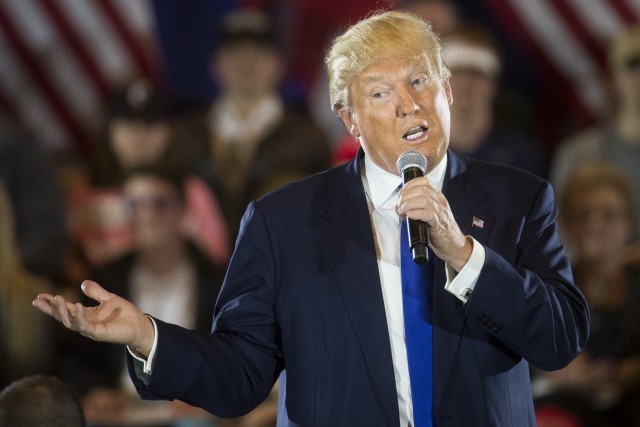
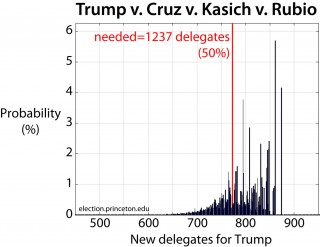
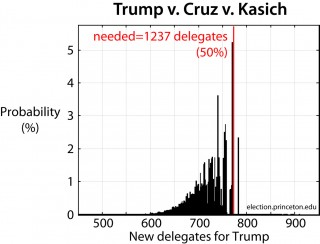
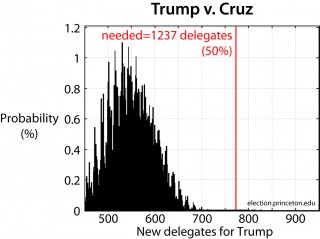

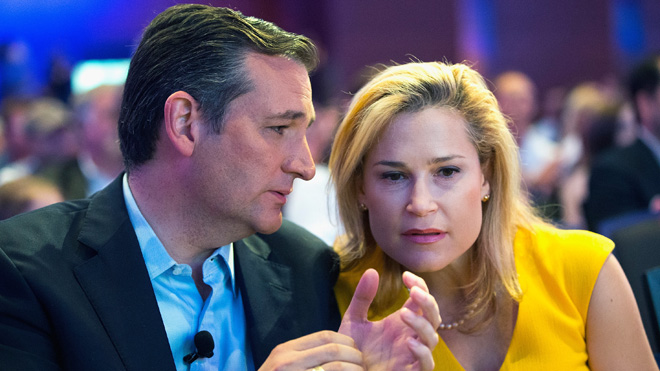
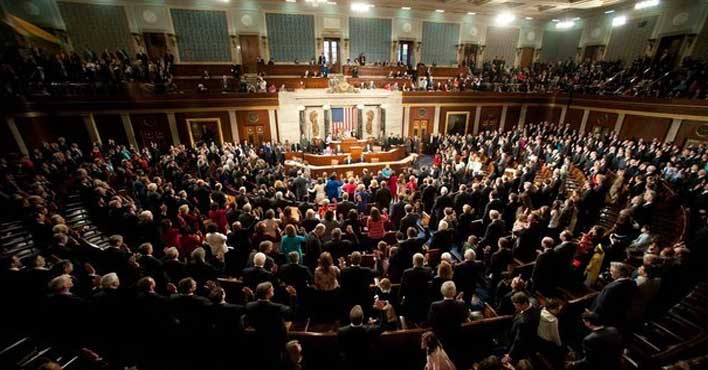





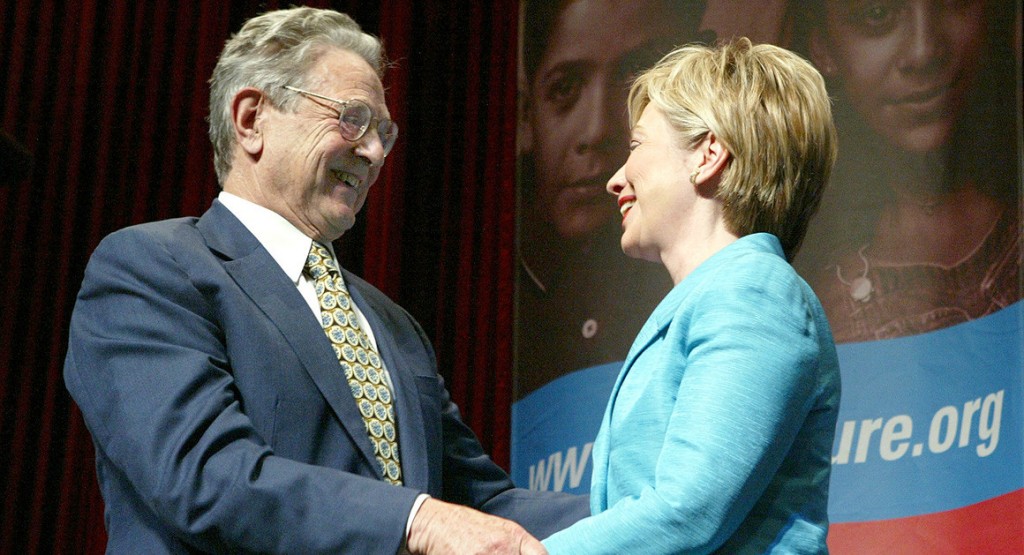


 Outbound marketing is buying attention, cold- calling,
Outbound marketing is buying attention, cold- calling,  Inbound marketing is the most effective marketing method for doing business online. Inbound marketing focuses on creating quality content that pulls people toward your company and product, where they naturally want to be. By aligning the content you publish with your customer’s interests, you naturally attract inbound traffic that you can then convert, close, and delight over time.
Inbound marketing is the most effective marketing method for doing business online. Inbound marketing focuses on creating quality content that pulls people toward your company and product, where they naturally want to be. By aligning the content you publish with your customer’s interests, you naturally attract inbound traffic that you can then convert, close, and delight over time.